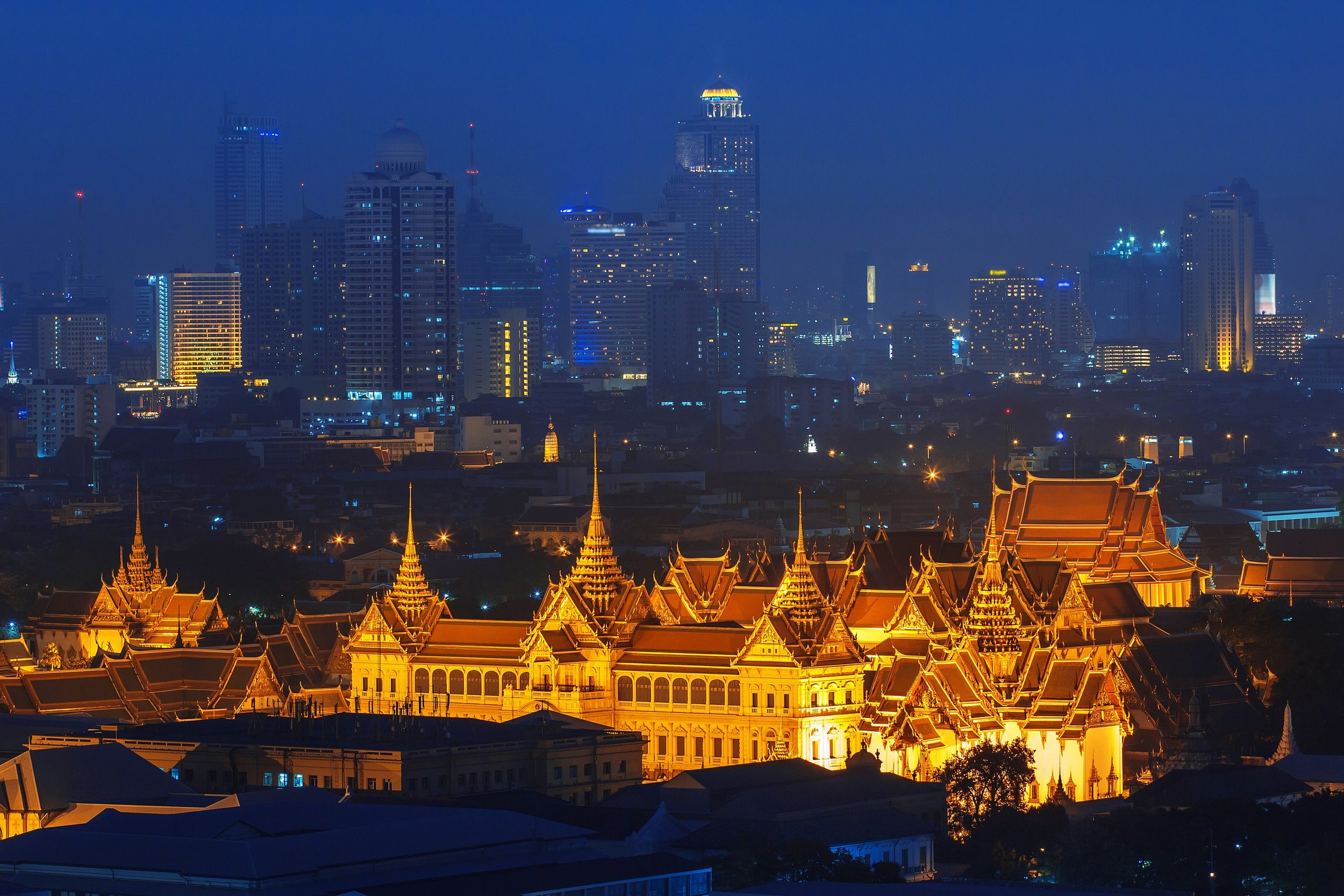Water Lantern Festival
The "Water Lantern Festival" or "ลอยกระทง" or "Loi-Kra-Tong" represents a traditional Thai celebration observed annually on the full moon night of the twelfth lunar month, typically occurring in November. Throughout this festival, individuals craft ornamental floating baskets or lanterns, referred to as "kratong," using banana leaves, flowers, candles, and incense sticks. These lanterns are delicately set afloat on water bodies, honoring Ganga, the goddess of water, and serving as offerings to the Buddha. This ritual symbolizes the dispelling of negativity, purifying the surroundings, and inviting positive energy into the lives of participants and their communities.
Thai Royal Lineage
The present-day Royal Thai families trace our ancestry back to the dynasties of Ayutthaya (hence the reason why all of us have the same subfix “Na Ayutthaya” or “ณ อยุธยา” at the end of our last name, symbolizing a heritage that encompasses the bloodlines of diverse kingdoms throughout the region.
Flower-Scented Water
The flower-scented water/perfume or “Nam Ob” (“น้ำอบ” in Thai) holds significant place within Thailand's aristocratic circles. The art of crafting it has been handed down through generations for centuries. Back home, it serves multifaceted purposes: from imparting aroma to bathing water, enhancing the flavors of our food and desserts, to spritzing onto our clothing, or creating candles and infusing the scents into our everyday items, utensils, food, even fragrant weapons.
Kabuli Rice
Originally a ceremonial delicacy during King Rama V's reign, the flavor profile of Kabuli Rice has evolved over time. The version prepared in King Rama IX's Royal Kitchen deviates slightly from the traditional recipe by incorporating fried red onions, raisins, and almonds into the rice mixture.
Massaman Curry
In essence, our family's Royal version of Massamun Curry stands as a testament to the harmonious fusion of cultures, a symbol of enduring love and dedication passed down through generations. Rooted in the rich tapestry of Thai history, this cherished dish not only embodies the cultural ties with the Muslim community but also reflects the inner palace traditions and the evolving culinary preferences within our family.
Gooey Coco-Crunchies
I remember when I was growing up, we always had hundreds of Allures stored in a glass jar in the hallway. You can probably imagine what would happen when kids were left unsupervised with candy around.
Crispy Egg Noodle Curry
The clash of Burmese and Chinese flavours, alongside Lanna's distinct adaptation, has individually contributed to the uniqueness of Lanna-Thai creation. This evolution has given rise to the cherished regional dish known as Khao Soi in northern Thailand.
Mango & Sticky Rice
A traditional Thai dessert. It typically consists of freshly cooked sticky rice drenched in sweet panda leaf scented coconut milk and served with fresh sliced mangoes on top. To enhance its texture and flavor, optional toppings like roasted mung beans and toasted sesame seeds can be sprinkled over it.
Pocket Leaf Bites
Before being wrapped, the leaves used in miang kham are typically drizzled with palm syrup or sugar cane syrup, often infused with lemongrass, galangal, ginger, and fish sauce for added flavor.
Crispy Rice Salad Balls
As you savor each tantalizing morsel, bear in mind the tale of once scared maiden, far from her beloved mountainous home, who weathered adversity, yet prevailed, and captivating all with her grace and culinary artistry.
Deep Fried Dumplings
I remember when I was young, I used to have fried pork fried dumplings or quail egg fried dumplings after school every day. Time flies… Now, I am making this for my family, especially Abigail every once in awhile.
Crispy Noodle
Our traditional crispy noodles, also known as ancient crispy noodles, are indeed a rare delicacy. The meticulous preparation process begins with the careful simmering and seasoning of the marinade, concocted from pickled garlic, tamarind, palm sugar, and fish sauce.
Songkran: New Year
April 13th of every year is regarded as “Maha Songkran” or “มหาสงกรานต์” in Thai, the day that the sun moves into Aries on the zodiac or the last day of the old year. Therefore “Songkran” is the Thai New Year celebration, which is a significant event in Thailand's cultural calendar.
Royal Cuisine
The Royal Cuisine is an art form that represents the delicacy of Thai culture, and the preservation and promotion of this cuisine is significant to Thai heritage.














